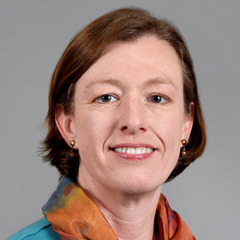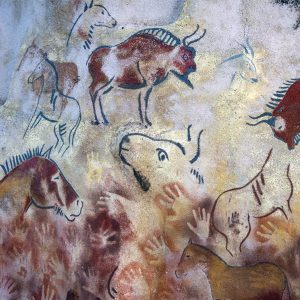Ancient Biomolecules of Plants, Animals, and Microbes (Virtual Conference)
29–31 March 2021
Wellcome Genome Campus, UK
Highlighting research on biomolecules retrieved from long-dead organisms
Summary
This meeting will highlight the evolutionary insights that can be gleaned by analysing biomolecules retrieved from long-dead organisms, focussing on plants, animals and microbes.
The advent of next generation sequencing and novel extraction methods has reinvigorated the field of ancient biomolecules, and as these technologies continue to develop, they will offer an ever more highly resolved perspective on the past. The introduction and adoption of next-generation sequencing has resolved many of the technical limitations and issues associated with contamination that previously hampered ancient DNA research. Newer analyses have included complete genome sequences of individuals that allow us to address questions related to admixture, migration, adaptation, domestication, and other aspects of phylogeny and population history. It also opens a new window onto both theoretical topics (including rates of evolutionary change) as well as practical issues including the response of species and populations to climate change and anthropogenic impacts.
The conference aims at attracting scholars working on a diverse range of evolutionary topics including conservation, extinction, speciation, adaptation, and domestication. It will serve to inform the attendees about best practice and novel approaches to both data generation and analysis.
Programme
The conference will start at approximately 1pm (BST) on Monday 29 March and close at approximately 6pm on Wednesday 31 March 2021. All times are given in British Summer Time. See the time where you are here.
Topics will include:
- Palaeoproteomics
- Ancient Microbiomes
- Domestication
- Sediments
- Ancient Plants
- Conservation and Extinction
Organisers and speakers
Scientific programme committee

Greger Larson
Oxford University, UK

Anne Stone
Arizona State University, USA

Selina Brace
Natural History Museum, UK

Hernán A. Burbano
UCL, UK
Keynote speakers

Lucy van Dorp
University College London, UK

Tom Gilbert
University of Copenhagen, Denmark
Confirmed speakers
Love Dalen – Centre for Palaeogenetics, Sweden
Katerina Guschanski – Uppsala University, Sweden
Rafal Gutaker – Kew Gardens, UK
Michael Hofreiter – University of Potsdam, Germany
Logan Kistler – Smithsonian Institution, USA
Anna Linderholm – Texas A&M University, USA
Aurelie Manin – University of Oxford, UK
Ludovic Orlando – CNRS & Toulouse University, France
Viviane Slon – Tel Aviv University, Israel
Camilla Speller – University of British Columbia, Canada
Tina Warinner – Max Planck Institute for the Science of Human History, Germany
Frido Welker – University of Copenhagen, Denmark
Conference organiser
Nicole Schatlowski, Senior Scientific Programme Officer
Jemma Hume, Conference & Events Organiser
Registration
| Virtual conference rate | |
| Student | 50£ |
| Delegates from LMICs* | 50£ |
| Academic | 100£ |
| Commercial | 150£ |
The virtual registration package includes: Access to all live-streamed sessions (including poster sessions and online networking channels), as well as access to all sessions ‘on-demand’ for four weeks after the event.
* To increase the international diversity of attendees at our meetings, we have reduced fees for delegates from Lower and Middle Income Countries (see list of countries here). If you are in need of financial support to cover the registration fees and would like to apply for a bursary, please contact the conference organiser. You will be asked to submit a CV and a letter stating financial need and how participation would benefit your scientific career.
Log in details for the virtual conference portal will be provided on Monday before the event.
Abstracts
We welcome abstracts from all areas relevant to the main themes of the meeting, for both oral and poster presentations. Several oral presentations will be chosen from the abstracts submitted.
Abstracts will only be considered from registered delegates. Please use our online abstract submission system and follow the instructions given to ensure your abstract is submitted correctly. All abstracts must be submitted by the deadline. If you are intending to submit more than one abstract, please contact the conference organiser prior to registration.
The scientific programme committee will assess your abstract after the deadline has passed and you will be notified whether you have been selected for an oral or poster presentation.
Poster boards onsite will accommodate 118 cm high by 84 cm wide (A0- portrait) of printed material. Accepted abstracts will appear in the conference programme book and poster boards will be allocated at the conference.
Abstract deadline: 16 February 2021
How to upload an abstract once you have already completed registration:
- Log back into your registration account using either Firefox or Internet Explorer as your browser, via link above the ‘Share’ button on the right hand column of this page
- Click on ‘Account’ (top right).
- Then click on ‘View account history’. This will show a table of your event registrations.
- In the right-hand column you will see the option to ‘Upload file’ – click on this and select to upload an abstract.

